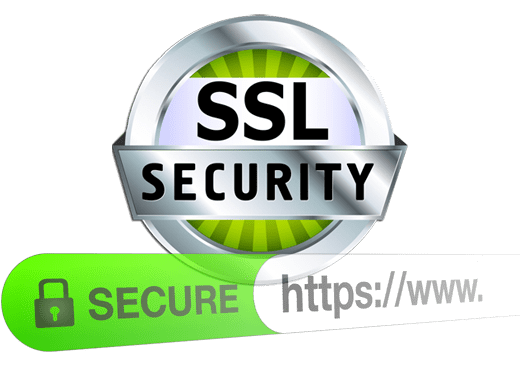Are Secure Websites Safe?
Most people are familiar with the little padlock symbol on websites indicating this is an encrypted site, and the messages on payment and bank sites that let you know you are on a secure site. We expect websites where we log in or pay money to be secure. What does that really mean? How do you tell if a site is “secure”?
Secure sites encrypt the data that travels between your screen and the webserver using an SSL certificate as the key. With this in place, the data can only be read by you and the server – not by hackers, sniffers or other eavesdroppers listening out on the Internet. Why does this matter?
If your business runs a website where customer data is collected or payments are made, your customers are depending on you to protect their personal data and keep their payments private.
Every day, your business uses websites all over the place: to pay suppliers, register for events, book flights, do the company banking. Every time you do this you are putting your trust (and your credit card details) in the hands of a website you may not know and can’t guarantee is safe.
That’s where secure web sites come in.
The most common website security method is SSL which encrypts all the data so that it can only be read by you and the webserver. All the communication between you and the website is protected because even if the data is intercepted, it is unreadable. The website holds a certificate which is the key to unencrypt the data, and is also proof the site is legitimate and secure. If you trust the certificate, you can be confident your communication with that site can’t be easily ‘sniffed’ to steal credit card or login information.
The company that issues the certificate acts as a third-party authority, guaranteeing the website is genuine and belongs to the company it says it belongs to. The padlock symbol in your browser bar lets you know the site is using SSL.
If you use the Internet, you need to understand about SSL. If your business has a website, you need to go a step further and become a secure site too, so you can make informed decisions about how you are protecting your customer’s data. Here’s what you need to consider when choosing your SSL provider and certificate type.
Price variation
The cost of obtaining a certificate varies considerably, from just a few hundred to thousands of dollars. More expensive does not necessarily mean better – the certificates issued by all providers carry the same guarantee that the site really does belong to the company that it claims to be.
I agree with this opinion.
SSL providers tell you they have large warranties for their certificates – even numbers like $250,000. But what does the warranty give anyone? It supposedly provides compensation to the user if the website owner turns out to be fraudulent and the customer loses money. This only applies if the the certificate turns out to have been issued without proper verification. I have not been able to find a single instance that a claim has ever been made against this type of warranty. As it is very unlikely that in case of fraud it would be the certificate issuer at fault, its pretty useless to even consider this warranty. I would certainly not suggest it should influence a buying decision.
SSL works as a technology, and does provide some reassurance that the website you are visiting really is the one you think it is and sites that accept credit card information are required to have SSL certificates. BUTif you need a certificate for your website, go for a reputable, low cost provider, these certificates are just as good.
Security seals
As well as the padlock in the browser bar, some SSL certificates will come with images of security seals that you can place on your site. They can be a key part of generating the trust you need for your visitors, so it’s worth checking whether your chosen certificate supports this.
Customer support
Customer support levels can vary wildly, from none at all to worthwhile technical support related to setting up your certificate and managing your website. If you are going it alone, this may be vital.
FooForce can help you to explore the options, advise you on the most appropriate features and benefits for your business and manage the whole show for you so you can have peace of mind. Give us a call or drop us an email.

